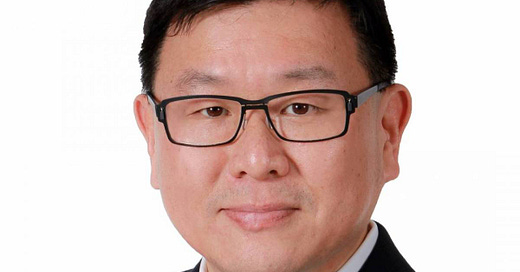Memo to the media: Steveston–Richmond East voters care about the planet
National newspapers are overlooking a hot issue in their coverage of former Conservative MP Kenny Chiu's loss in the 2021 election.
Vancouver journalist Ng Weng Hoong has written a devastating analysis of the Canadian media’s coverage of foreign interference in elections. The title of the piece, “The Convergence of Sinophobia and Sinofascism in Canada”, addresses how the Chinese government headed by Xi Jinping and some high-profile Canadian media commentators and the head of CSIS are actually spreading similar misinformation about people of Chinese ancestry in Canada. You can read it here.
Mr. Ng makes a good case that former Conservative MP Kenny Chiu lost his federal seat in Steveston–Richmond East in 2021 due to factors unrelated to Chinese foreign interference. That stands in contrast to the narrative in the national media and in comments before a public inquiry into foreign interference in elections.
To offer more context, I’ve decided to post something this morning to educate the national media on why the environment is a major issue in Steveston–Richmond East. Furthermore, I believe it was a significant factor behind Chiu’s defeat.
The Conservatives under Erin O'Toole’s leadership were exceptionally weak in addressing the perils of rising greenhouse gas emissions. Steveston, in particular, is one of those high-income areas where the climate is a significant concern for the electorate.
Here's the case why the environment matters in Steveston-Richmond East.
a) In the final days of the 2021 campaign, Justin Trudeau campaigned in Steveston with former B.C. Green Leader Andrew Weaver. Weaver, a climate researcher at UVic, endorsed the federal Liberals. The Liberal polling must have shown Conservative weakness on this issue. And the Liberals chose Kenny Chiu's riding, rather than Victoria where Weaver lives, to feature the former B.C. Green leader with Trudeau.
b) Steveston is a major fishing community. Hotter weather is warming the Fraser River, which has the potential to fry salmon before they reach the spawning grounds. Therefore, the climate is more of an economic issue in Steveston–Richmond East, which straddles the South Arm of the Fraser River, than perhaps any other Metro Vancouver riding.
c) In Steveston and East Richmond, there are quite a few large farms. Farmers also have an economic stake in the climate.
d) One of the NDP MLAs who serves this riding at the provincial level, Kelly Greene (Richmond-Steveston), is extremely green. She promoted environmental issues when she was a member of city council. She was sufficiently "green" that the B.C. Greens did not even field a candidate against her.
e) The most popular politician in history from this area is Harold Steves, a.k.a. Mr. Richmond. He was probably the most vocal environmentalist of any suburban politician ever elected in Metro Vancouver. Steves endorsed Kelly Greene in 2020, even though he often slams the B.C. NDP. It's because she met his bona fides for being sufficiently green to represent a constituency named after his family. Steveston is very green and Kenny Chiu wasn’t.
f) Another NDP MLA whose constituency partially overlaps the riding is Aman Singh. He represents Richmond-Queensborough. Singh does not have a history of environmental activism. Despite this, David Eby appointed him as the parliamentary secretary for environment. It's because Eby knows that the environment has a special resonance for communities along the South Arm of the Fraser River.
g) A former Reform and Conservative MP for Delta-Richmond East, John Cummins, was a very unusual member of the Preston Manning and Stephen Harper-led caucuses. Cummins was an adamant opponent of fish farms and often spoke about environmental issues. He was really right wing. But he had a strong green streak. It's because he knew that this resonated with his fellow fishermen. Cummins lasted in Parliament from 1993 until he chose not to seek re-election in 2011. He later became leader of the B.C. Conservatives.
Kenny Chiu never learned from Cummins's example. Chiu didn’t demonstrate a serious interest in environmental issues. In fact, he likely threw away potential votes with his lack of curiosity, just as he threw away votes by not doing nearly enough to condemn anti-Asian hatred in his two years as MP.
The national media love portraying Chiu as a victim of the authoritarian Sinofascist dictator Xi Jinping. It’s a simple and beautiful narrative that reinforces conventional wisdom and wins journalism awards.
But it overlooks the deep environmental concerns that exist in Steveston–Richmond East, as well as Chiu’s decision to vote against a federal ban on conversion therapy.
Here’s another inconvenient truth for those citing a single factor behind Chiu’s loss. Four Conservative incumbents were defeated in Metro Vancouver in the 2021 election. And all four, including Chiu, pandered to social conservatives by voting against outlawing conversion therapy. Chiu also voted in favour a private member’s bill to recriminalize abortion.
I decided to write all of this here because judging from the testimony at the public inquiry, it’s not likely to show up in the final report.



